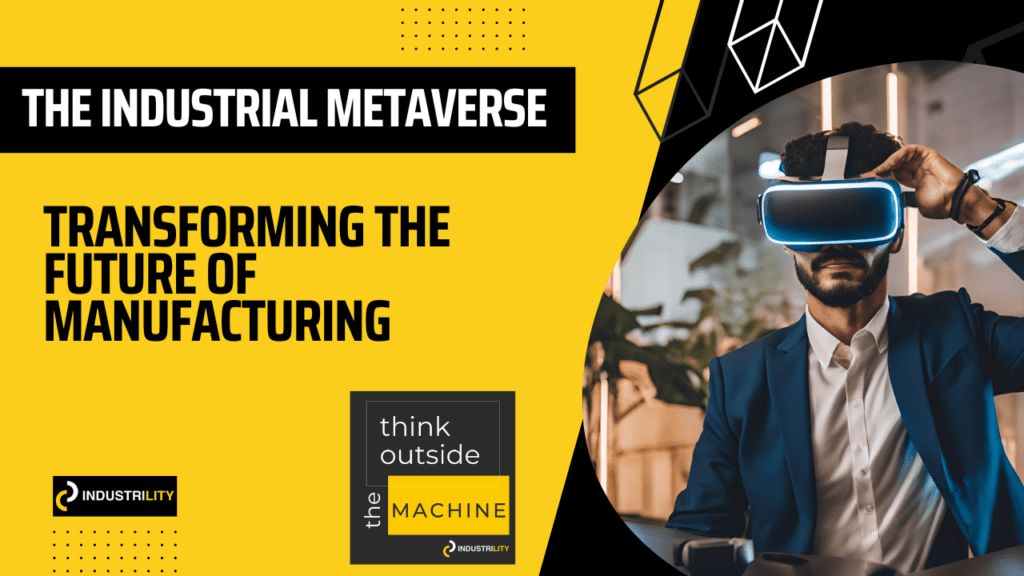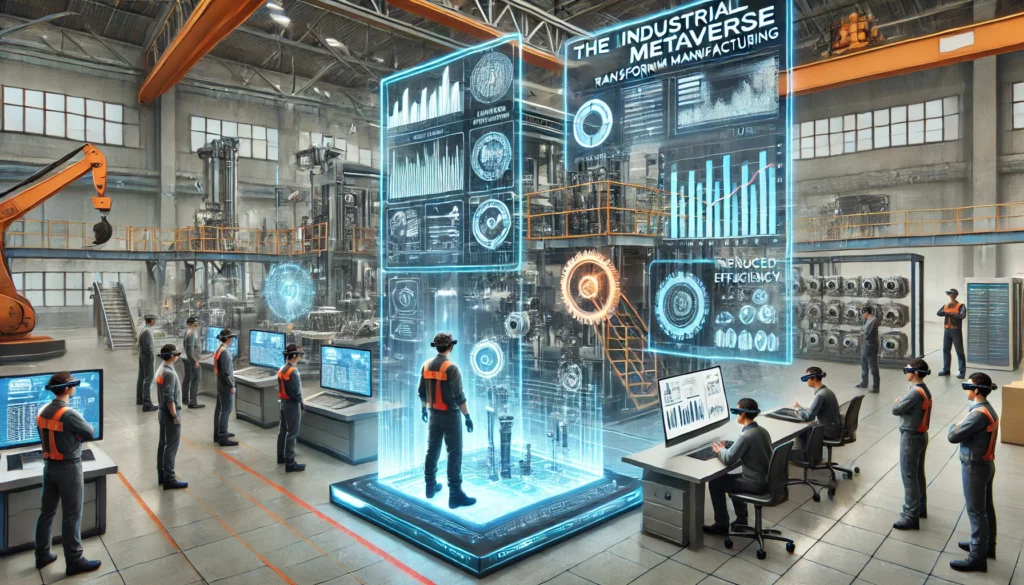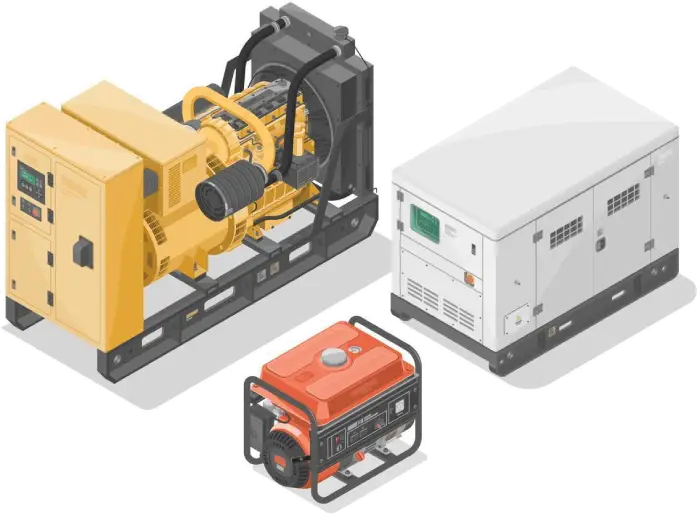The Industrial Metaverse: Transforming the Future of Manufacturing

The Industrial Metaverse: Transforming the Future of Manufacturing
In the ever-evolving landscape of manufacturing, technological advancements continuously redefine the possibilities of production, maintenance, and overall operations. Among these advancements, the concept of the Industrial Metaverse stands out as a groundbreaking innovation. The Industrial Metaverse leverages virtual and augmented reality, artificial intelligence, and digital twin technologies to create a seamless, interconnected, and immersive digital environment. This environment not only enhances efficiency but also fosters innovation and collaboration across the entire value chain.
By creating a digital counterpart to your physical assets, you can simulate different scenarios, predict potential issues, and make data-driven decisions that improve efficiency and reduce costs. Enhancing this digital-twin with other information like Parts bill-of-materials, training, maintenance, service, reporting and analytics generates an operational digital twin (Soul) which stays alive throughout the lifetime of the machinery (Body).
Key Components and Technologies
Digital Twins: At the heart of the Industrial Metaverse are digital twins—precise virtual replicas of physical assets. These digital counterparts are continuously updated with real-time data from their physical counterparts, providing an accurate and dynamic representation. This technology enables predictive maintenance, real-time monitoring, and scenario testing without disrupting actual operations.
Virtual and Augmented Reality (VR/AR): VR and AR technologies play a crucial role in the Industrial Metaverse by providing immersive experiences. VR offers a fully virtual environment for training, simulation, and design, while AR overlays digital information onto the physical world, enhancing on-site operations, maintenance, and troubleshooting.
Artificial Intelligence and Machine Learning (AI/ML): AI and ML algorithms analyze vast amounts of data generated within the Industrial Metaverse. These technologies enable predictive analytics, optimize production processes, and provide actionable insights to enhance decision-making.
Internet of Things (IoT): IoT devices collect and transmit data from physical assets to their digital twins, ensuring real-time synchronization. This connectivity is essential for maintaining the accuracy and relevance of the digital representations within the Industrial Metaverse.
Defining the Industrial Metaverse
The Industrial Metaverse is an extension of the broader metaverse concept, tailored specifically for industrial applications. It combines the physical and digital worlds to create a comprehensive virtual environment where manufacturing processes can be simulated, monitored, and optimized.

Benefits of the Industrial Metaverse
Enhanced Collaboration: The Industrial Metaverse fosters a new level of collaboration by providing a shared virtual space where stakeholders, regardless of their physical location, can interact with digital models and each other. Engineers, designers, and operators can work together in real-time, speeding up the innovation process and reducing time-to-market for new products.
Improved Efficiency and Productivity: By leveraging digital twins and predictive analytics, the Industrial Metaverse allows for the optimization of production processes. Potential issues can be identified and addressed before they cause disruptions, reducing downtime and increasing overall productivity. Additionally, virtual training environments enable workers to gain hands-on experience without the risks associated with physical training.
Cost Reduction: The ability to simulate and test scenarios in a virtual environment significantly reduces the costs associated with physical prototyping and testing. Companies can explore multiple design iterations and operational strategies without incurring the expenses of physical trials.
Sustainability: The Industrial Metaverse contributes to sustainability efforts by optimizing resource usage and minimizing waste. Accurate simulations and real-time monitoring enable companies to fine-tune their operations, reducing energy consumption and material waste.
Real-World Applications
Predictive Maintenance: Digital twins equipped with AI-driven predictive analytics can forecast when equipment is likely to fail, allowing for timely maintenance. This approach minimizes unplanned downtime and extends the lifespan of machinery.
Remote Assistance and Troubleshooting: AR technology enables remote experts to provide real-time assistance to on-site technicians. By overlaying digital instructions and guidance onto the physical equipment, AR ensures accurate and efficient troubleshooting.
Design and Prototyping: Virtual reality allows engineers to create and test designs in a fully immersive environment. This capability accelerates the design process and enables the identification of potential issues early in the development cycle.
Supply Chain Optimization: The Industrial Metaverse provides a holistic view of the supply chain, enabling better coordination and optimization. Real-time data from IoT devices ensures that all stakeholders have up-to-date information, enhancing supply chain resilience and efficiency.
Future Prospects
The Industrial Metaverse is still in its early stages, but its potential is immense. As technologies continue to evolve and become more accessible, the adoption of the Industrial Metaverse is expected to grow. Companies that embrace this innovation will gain a competitive edge by unlocking new levels of efficiency, collaboration, and sustainability.
Conclusion
The Industrial Metaverse represents a transformative leap forward for the manufacturing industry. By seamlessly integrating the physical and digital worlds, it offers unprecedented opportunities for innovation, efficiency, and collaboration.
As we move towards this digital future, the Industrial Metaverse will undoubtedly play a pivotal role in shaping the next era of industrial development.While adopting the concept of the Industrial Metaverse might seem exciting, it can pose a daunting venture. At Industrility, we are committed to helping machine manufacturers harness the Industrial Metaverse’s full potential as part of their IIoT strategy. By following the steps outlined in this article and leveraging our GenAI-powered platform, you can create effective digital twins that drive innovation, optimize performance, and generate significant business value.
